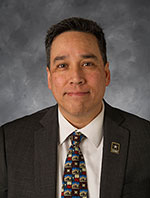
Tuberculosis bacteria
Microbiology performs whole-genome sequencing and pulsed-field gel electrophoresis on all isolates of Salmonella, Shigella, E.coli and Listeria. The section continues to address the challenges of increased specimens as a result of culture-independent diagnostic testing.
Microbiology is the study of microorganisms in humans that are, or may be, the cause of illness. Specialized testing is performed in several areas: bacteriology, parasitology, mycobacteriology (tuberculosis) and mycology (fungi).
The Microbiology section supports IDPH, all county health agencies and hospitals throughout the state by isolating, identifying and characterizing pathogens that are of public health significance. The section also performs all rabies testing associated with human exposure and performs enteric pathogen serotyping. It uses pulsed-field gel electrophoresis to determine the DNA fingerprint of bacteria and is a member of the CDC’s PulseNet, which uses these fingerprints to detect and define local and multi-state foodborne outbreaks.
Selected section staff participate in the CDC Laboratory Response Network, which responds quickly to biological, chemical and radiological threats and other high priority public health emergencies. They are able to perform confirmatory testing of suspect agents of bioterrorism.
HIGHLIGHTS
- “How Next Generation Sequencing is Revolutionizing Public Health,” Travis Henry and Ryan Jepson (Iowa Governor’s Conference on Public Health)
- “Culture-Independent Testing – Benefits and Challenges to Public Health,” Gary Moet (Iowa Governor’s Conference on Public Health)
- “The Effects of Antimicrobial Resistance on Human and Animal Health and the Environment,” Ryan Jepson and Wade Aldous (Iowa Governor’s Conference on Public Health)
- “Is This Heaven?! No, it’s Identification of Mycobacterium sp. from Culture Using PCR!” Ryan Jepson (10th National Conference on Laboratory Aspects of Tuberculosis)
- “The Concentration That Kills: A Case Study Evaluating TB Recovery and the Potential Impact of an Increased Concentration of Sodium Hydroxide,” Ryan Jepson (10th National Conference on Laboratory Aspects of Tuberculosis)
- “State Hygienic Laboratory - What Do We Do?” Jennifer Elwood (Iowa One Health Conference, UI Center for Emerging Infectious Diseases)
- Mycobacteriology (tuberculosis)
- Parasitology
- PulseNet and enteric bacteriology
- Reference bacteriology
- Mycology



